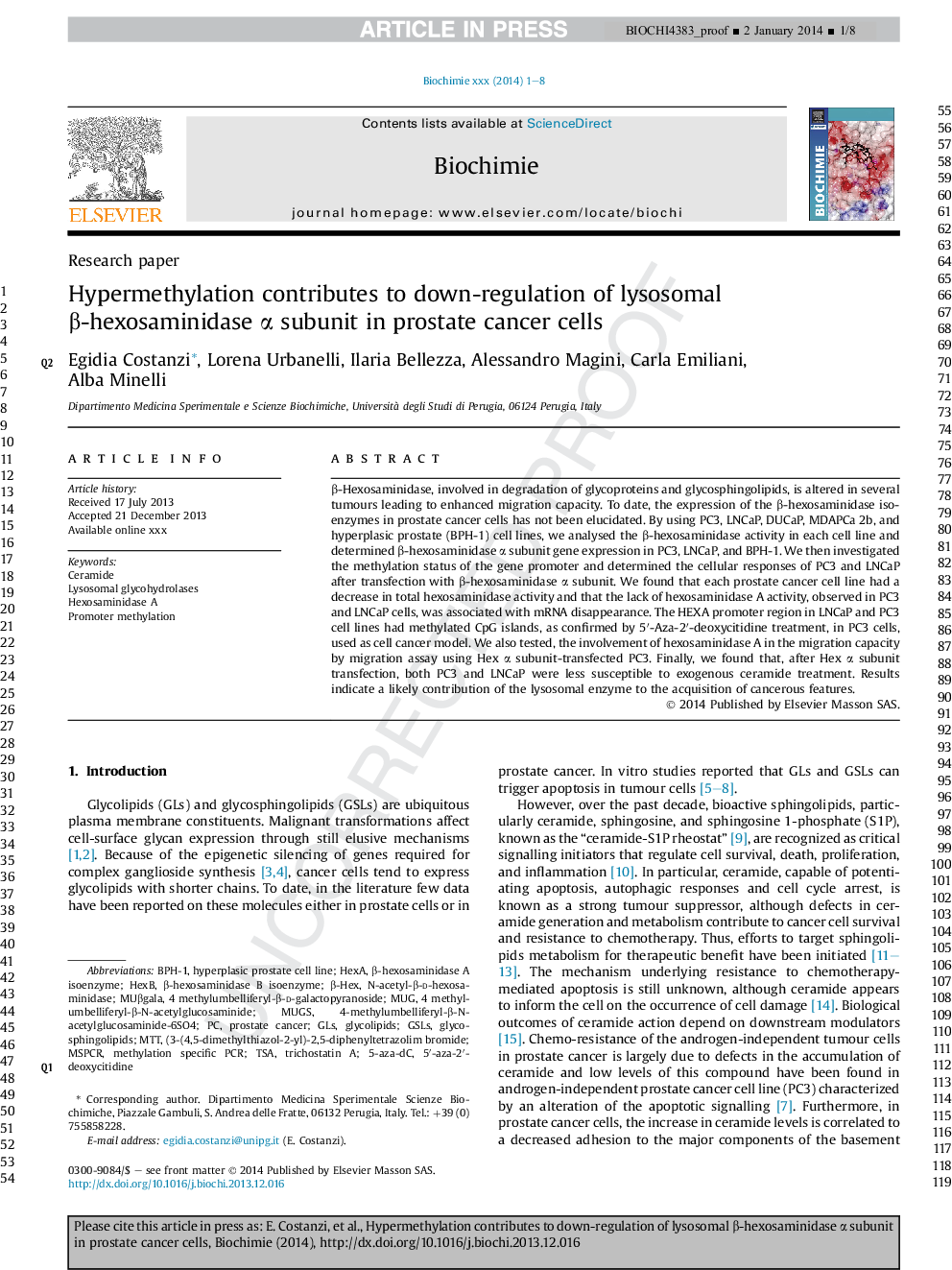| Article ID | Journal | Published Year | Pages | File Type |
|---|---|---|---|---|
| 8305420 | Biochimie | 2014 | 8 Pages |
Abstract
β-Hexosaminidase, involved in degradation of glycoproteins and glycosphingolipids, is altered in several tumours leading to enhanced migration capacity. To date, the expression of the β-hexosaminidase isoenzymes in prostate cancer cells has not been elucidated. By using PC3, LNCaP, DUCaP, MDAPCa 2b, and hyperplasic prostate (BPH-1) cell lines, we analysed the β-hexosaminidase activity in each cell line and determined β-hexosaminidase α subunit gene expression in PC3, LNCaP, and BPH-1. We then investigated the methylation status of the gene promoter and determined the cellular responses of PC3 and LNCaP after transfection with β-hexosaminidase α subunit. We found that each prostate cancer cell line had a decrease in total hexosaminidase activity and that the lack of hexosaminidase A activity, observed in PC3 and LNCaP cells, was associated with mRNA disappearance. The HEXA promoter region in LNCaP and PC3 cell lines had methylated CpG islands, as confirmed by 5â²-Aza-2â²-deoxycitidine treatment, in PC3 cells, used as cell cancer model. We also tested, the involvement of hexosaminidase A in the migration capacity by migration assay using Hex α subunit-transfected PC3. Finally, we found that, after Hex α subunit transfection, both PC3 and LNCaP were less susceptible to exogenous ceramide treatment. Results indicate a likely contribution of the lysosomal enzyme to the acquisition of cancerous features.
Keywords
Related Topics
Life Sciences
Biochemistry, Genetics and Molecular Biology
Biochemistry
Authors
Egidia Costanzi, Lorena Urbanelli, Ilaria Bellezza, Alessandro Magini, Carla Emiliani, Alba Minelli,
